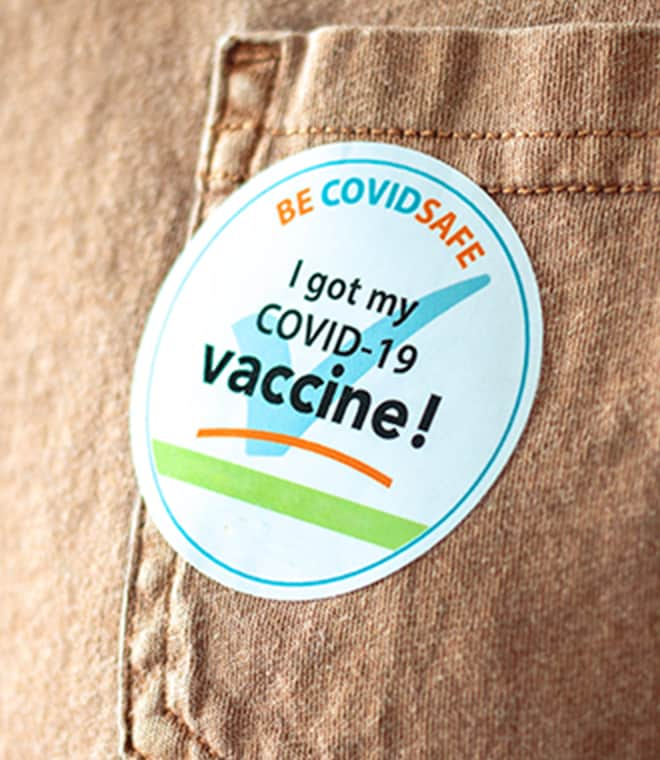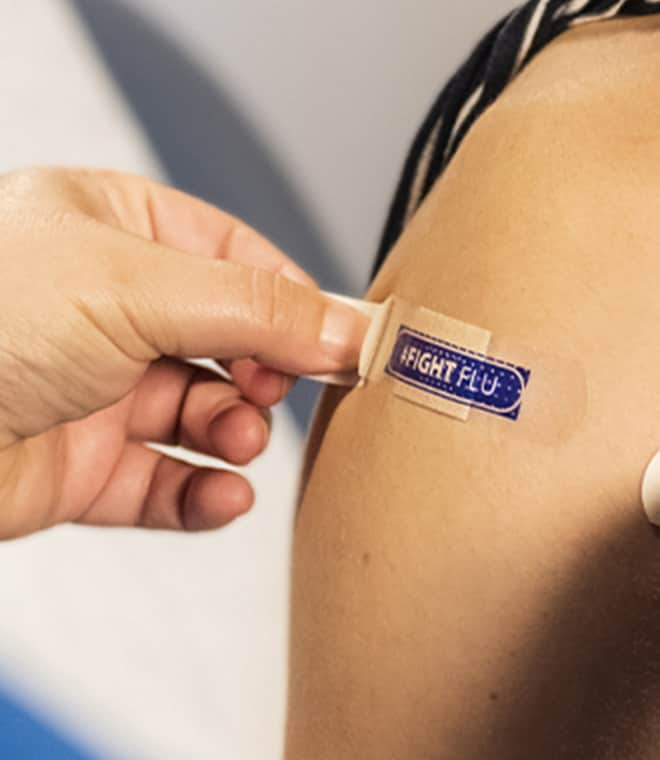Health
Pneumonia and shingles vaccines
By Ruben J. Rucoba, MD Jan 29, 2025 • 13 min
Pneumonia (pneumococcal) and shingles (herpes zoster) are both serious illnesses that can lead to certain complications, hospital visits, or even death for some people. Having certain health conditions or a weakened immune system may place a person at higher risk of either contracting these infections and/or developing complications, compared to people who don’t have underlying health conditions. In addition, the chance of older people developing complications caused by a shingles or pneumonia infection increases because the immune system weakens as we age.
Now, adults ages 50 years and older are advised to get vaccinated against both shingles and pneumonia. Adults ages 19 to 49 years with certain medical conditions or other risk factors should also get vaccinated against pneumonia. Individuals in these age groups who may be vulnerable to these illnesses will now have more access to these protective vaccines. Young children are also at greater risk of becoming infected with pneumonia, so it is recommended that those younger than 2 years old receive the pneumonia vaccine. It is important to follow the current recommended vaccine schedule and stay up to date with vaccines, regardless of your age.
What is pneumococcal pneumonia?
Pneumonia is an infection in the lungs. Pneumonia is categorized by the type of germ causing the infection and where you got the infection. Many different germs, including both viruses and bacteria, can cause pneumonia. One of the more common types of pneumonia in adults worldwide, pneumococcal pneumonia, is caused by the Streptococcus pneumoniae bacteria. Symptoms of pneumococcal pneumonia include:
- Fever and chills
- Cough, often producing rusty-colored pus discharge (phlegm)
- Rapid breathing or difficulty breathing
- Chest pain
- Weakness
- Confusion or low alertness (older adults are more likely to experience these symptoms than the more common ones listed above)
If you think you have pneumonia, seek medical attention as soon as possible, especially if you're experiencing difficulty breathing, chest pain and/or confusion. These symptoms can be serious and require immediate medical attention.
Complications of pneumococcal pneumonia include a collection of pus in the lungs (abscess) and inflammation of the lining surrounding the heart (pericarditis).
According to the Centers for Disease Control and Prevention (CDC), pneumococcal pneumonia causes over 150,000 hospitalizations each year in the US, and about 1 in 20 of those infected will die from the disease.
Can pneumococcal pneumonia be prevented?
There are several vaccines available for prevention of pneumococcal pneumonia. The CDC recommends different vaccines according to the patient’s eligibility criteria to receive them.
- Pneumococcal polysaccharide vaccine (PPSV23, Pneumovax 23®): This vaccine is effective against 23 different types of the S. pneumonia bacteria. The CDC recommends this vaccine for:
- Everyone 50 years of age and older
- People ages 2 years and older with certain medical conditions that can lead to an increased risk for pneumococcal disease
- People ages 19-64 who are smokers
- Adults 19 years and older who have received the PCV15 as part of a vaccine series, ideally within a year to complete their vaccination series.
It is not recommended for children younger than 2 years old.
- Pneumococcal conjugate vaccine PCV15 (Vaxneuvance®), PCV20 (Prevnar 20®): These vaccines are effective against 15 and 20 different types of the S. pneumonia bacteria, respectively.
- PCV15 is recommended for any adult 50 years or older and adults 19 to 49 years old with certain medical conditions or other risk factors. Adults 19 years or older who receive this vaccine should then receive the PPSV23 as part of a series.
- PCV20 is a one-dose vaccine now available, which means you will not need to get an additional pneumonia vaccine dose if you get the PCV20. The CDC recommends the PCV20 for any adult 50 years or older. It is also recommended for adults ages 19 to 49 years who have any of the following conditions:
- Alcoholism
- Cerebrospinal fluid leak
- Chronic heart disease, liver disease or lung disease
- Chronic renal (kidney) failure
- Cigarette smoking
- Cochlear implant
- Asplenia (having no spleen — whether born without one or having "acquired asplenia")
- Congenital (born with) or acquired immunodeficiency, including B-(humoral) or T-lymphocyte deficiency, complement deficiency, phagocytic disorder (does not include chronic granulomatous disease)
- Diabetes mellitus
- Generalized malignancy (cancer)
- HIV infection
- Hodgkin's lymphoma
- Lowered immunity caused by medicines, such as high-dose prednisone, and other immunodeficiency (low immunity)
- Blood cancers, including leukemia, lymphoma and multiple myeloma
- Nephrotic syndrome (a problem with the kidneys)
- Sickle cell disease and other "hemoglobinopathies" (certain diseases affecting red blood cells)
- Solid organ transplants
If you are an adult who gets one dose of PCV20, you don't need to repeat it, but if you got a dose of PCV13, PCV15 or PPSV23, you may need an additional pneumonia vaccine to complete your series.
Getting a pneumococcal vaccine is the best way to help prevent pneumonia infection. Staying up to date with your flu vaccination every year is important too. Having the flu increases the likelihood of getting a secondary infection of pneumococcal pneumonia. Also, two studies from the Alzheimer’s Association International Conference (AAIC) 2020 showed that getting a flu vaccine was connected with a 17% decrease in incidence of Alzheimer’s dementia and decreased another 13% with more consistent annual flu vaccination; while pneumonia vaccine given to people ages 65-75 decreased Alzheimer’s risk up to 40%, depending on individual genes. There are effective pneumonia vaccine options available, including PCV20, which has shown effectiveness with only one dose. Go to Walgreens.com/vaccines to find out more information and to schedule your vaccination(s) at your local Walgreen’s Pharmacy.
What is shingles?
Shingles is a rash that can cause a painful aching and/or burning sensation on one side of your body or face. The CDC estimates that one in every three people will get shingles at some point in their lifetime and that about 1 million people in the US get shingles every year. The rash consists of blisters that typically scab over in 7-10 days and clear up within 2-4 weeks. Other symptoms of shingles include [8]:
- Fever
- Headache
- Chills
- Upset stomach
Shingles is caused by the varicella zoster virus (a herpes virus), which also causes chickenpox. After a case of chickenpox, the body can’t rid itself of the virus but instead the virus remains dormant (inactive) in the nerve branches of the spinal cord. Later in life, a trigger (such as stress, illness, infection, surgery) may cause the virus to reactivate. It then spreads out along the nerve branch where it has been dormant, which is why shingles is isolated to one area and one side of the body, as opposed to chickenpox, where the rash presents all over.[9]
The most common complication of shingles is long-standing nerve pain where the rash was located before (called "postherpetic neuralgia (PHN)," literally meaning nerve pain after herpes). This pain can last for months or years after the rash has gone away and can be severe. Another serious complication is vision loss or blindness if the shingles affects the nerves around the eye. Rarer complications include pneumonia, hearing loss, brain inflammation (encephalitis), stroke, heart attack, and even death.[10] People who develop shingles have a 59 percent higher risk of heart attack and 35 percent higher risk of stroke during the year after the infection than those who don't get the viral infection. People who are under 40 years old have the highest risk of stroke.[15]
Can shingles be prevented?
Yes, shingles can be prevented. Recombinant zoster vaccine (RZV, Shingrix®) is currently the only vaccine authorized for the prevention of shingles and postherpetic neuralgia in the US. The CDC currently recommends Shingrix® for everyone 50 and older and adults 19 and older who have or will have weakened immune systems because of disease or therapy. Shingrix® is recommended even if you’ve had chickenpox or if you’ve received the chickenpox vaccine in the past. There is no need for blood tests to see if you had chickenpox. Even if you've already had shingles, you can and should get Shingrix® to prevent future outbreaks.
The vaccine is given in two doses, separated by two to six months (with exceptions for those with weakened immune systems). You should not get Shingrix® if you're pregnant or breastfeeding, if you currently have shingles, or if you are allergic to any component of the Shingrix® vaccine.
As of November 18, 2020, Zostavax® is a shingles vaccine that is no longer available for use in the US. But many people got Zostavax® before it was discontinued. The CDC recommends that if you did get Zostavax®, then you should get a Shingrix® vaccination. Talk to your healthcare provider about the best time to get the Shingrix® vaccine.
In January 2022, the CDC officially recommended that adults 19 and older who have compromised immunity should get the Shingrix® vaccine in two doses, separated by 1-2 months if they would benefit from a shorter vaccination schedule. In this case, people with immunity problems (immunocompromised people) include those who:
- had a bone marrow transplant known by the medical term "autologous hematopoietic stem cell transplant"
- are undergoing treatment for a blood cancer
- are immunocompromised (or are expected to become so) due to another known disease such as HIV, solid tumor and kidney transplant, or immunosuppressive medications or therapies.
For adults 50 to 69 years old with healthy immune systems, Shingrix® was 97% effective in preventing shingles; for adults 70 years and older, Shingrix® was 91% effective. In adults 50 years and older, Shingrix was 91% effective in preventing PHN; in adults 70 years and older, Shingrix® was 89% effective. Studies show that it is 68%-91% effective for shingles prevention in adults with weakened immune systems, depending on the immune condition. Immunity has been reported to last for at least the first 7 years after vaccination for people ages 70 years and older. Visit Walgreens.com/vaccines to find out more information and to schedule your vaccine appointment at your local Walgreen’s Pharmacy.
Updated by Rebeca Thomas RN, BSN, January 2025.
Sources:
- https://www.cdc.gov/media/releases/2024/s1023-pneumococcal-vaccination.html
- https://www.cdc.gov/mmwr/volumes/74/wr/mm7401a1.htm
- https://www.cdc.gov/mmwr/volumes/72/rr/rr7203a1.htm
- https://www.cdc.gov/pneumococcal/hcp/vaccine-recommendations/index.html?CDC_AA_refVal=https%3A%2F%2Fwww.cdc.gov%2Fvaccines%2Fvpd%2Fpneumo%2Fhcp%2Fwho-when-to-vaccinate.html
- https://www.cdc.gov/vaccines/hcp/current-vis/pneumococcal-polysaccharide.html?CDC_AAref_Val=https://www.cdc.gov/vaccines/hcp/vis/vis-statements/ppv.html
- https://www.cdc.gov/pneumococcal/index.html
- https://www.cdc.gov/pinkbook/hcp/table-of-contents/chapter-17-pneumococcal-disease.html
- https://www.cdc.gov/pneumococcal/signs-symptoms/index.html
- https://www.cdc.gov/vaccines/vpd/pneumo/hcp/who-when-to-vaccinate.html
- https://www.cdc.gov/shingles/index.html
- https://www.cdc.gov/shingles/signs-symptoms/?CDC_AAref_Val=https://www.cdc.gov/shingles/about/symptoms.html
- https://www.cdc.gov/shingles/about/?CDC_AAref_Val=https://www.cdc.gov/shingles/about/transmission.html
- https://www.cdc.gov/shingles/signs-symptoms/?CDC_AAref_Val=https://www.cdc.gov/shingles/about/complications.html
- https://www.cdc.gov/shingles/vaccines/?CDC_AAref_Val=https://www.cdc.gov/vaccines/vpd/shingles/public/shingrix/index.html
- https://www.cdc.gov/vaccines/vpd/pneumo/hcp/recommendations.html
- https://newsnetwork.mayoclinic.org/discussion/shingles-sufferers-could-face-risk-of-stroke-heart-attack/
- https://www.acc.org/about-acc/press-releases/2017/07/05/09/53/shingles-increases-risk-of-heart-attack-stroke
- https://www.alz.org/aaic/releases_2020/vaccines-dementia-risk.asp
- https://www.lung.org/blog/pneumococcal-pneumonia-risk-assessment
- https://www.nia.nih.gov/health/shingles



